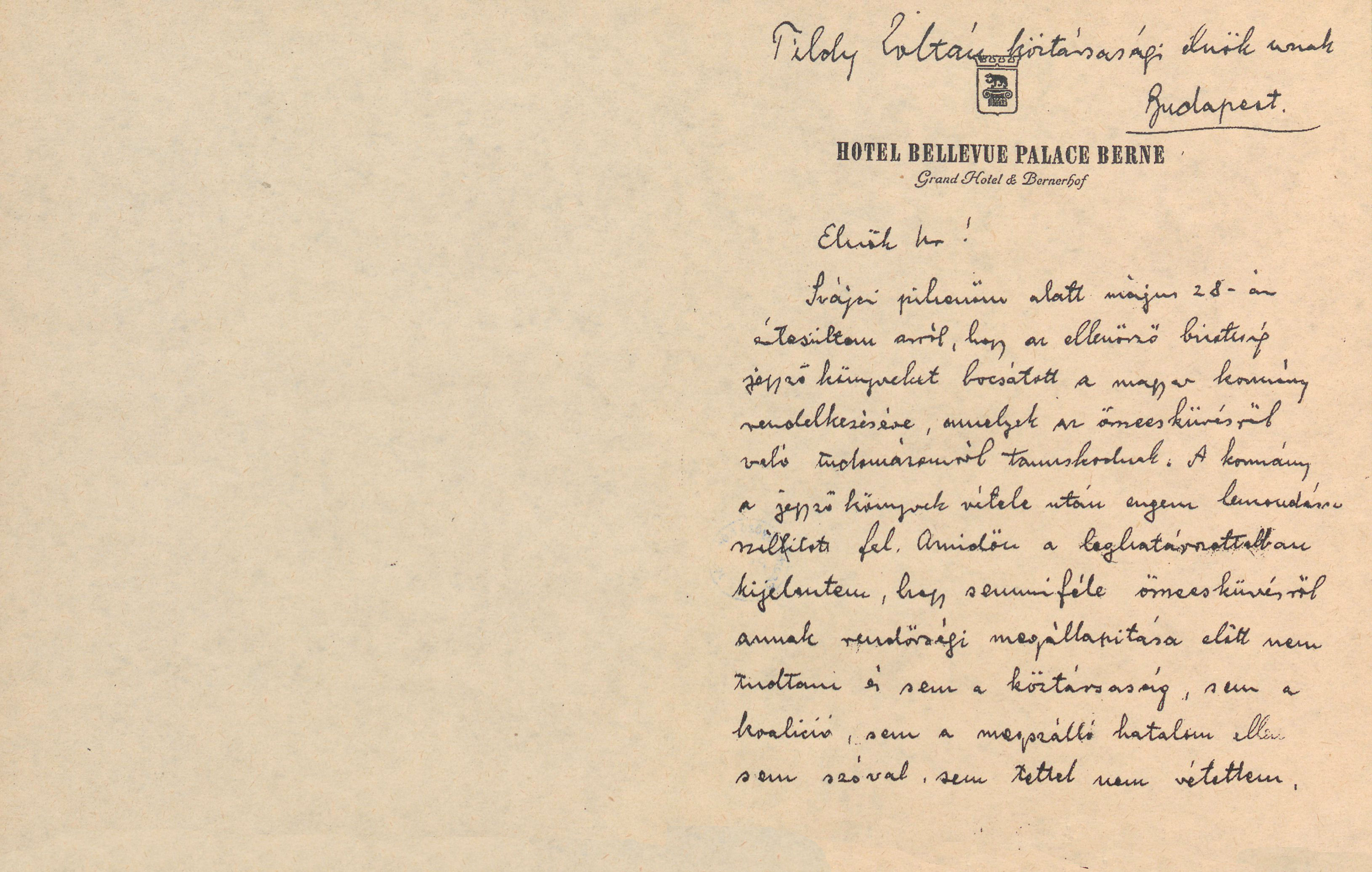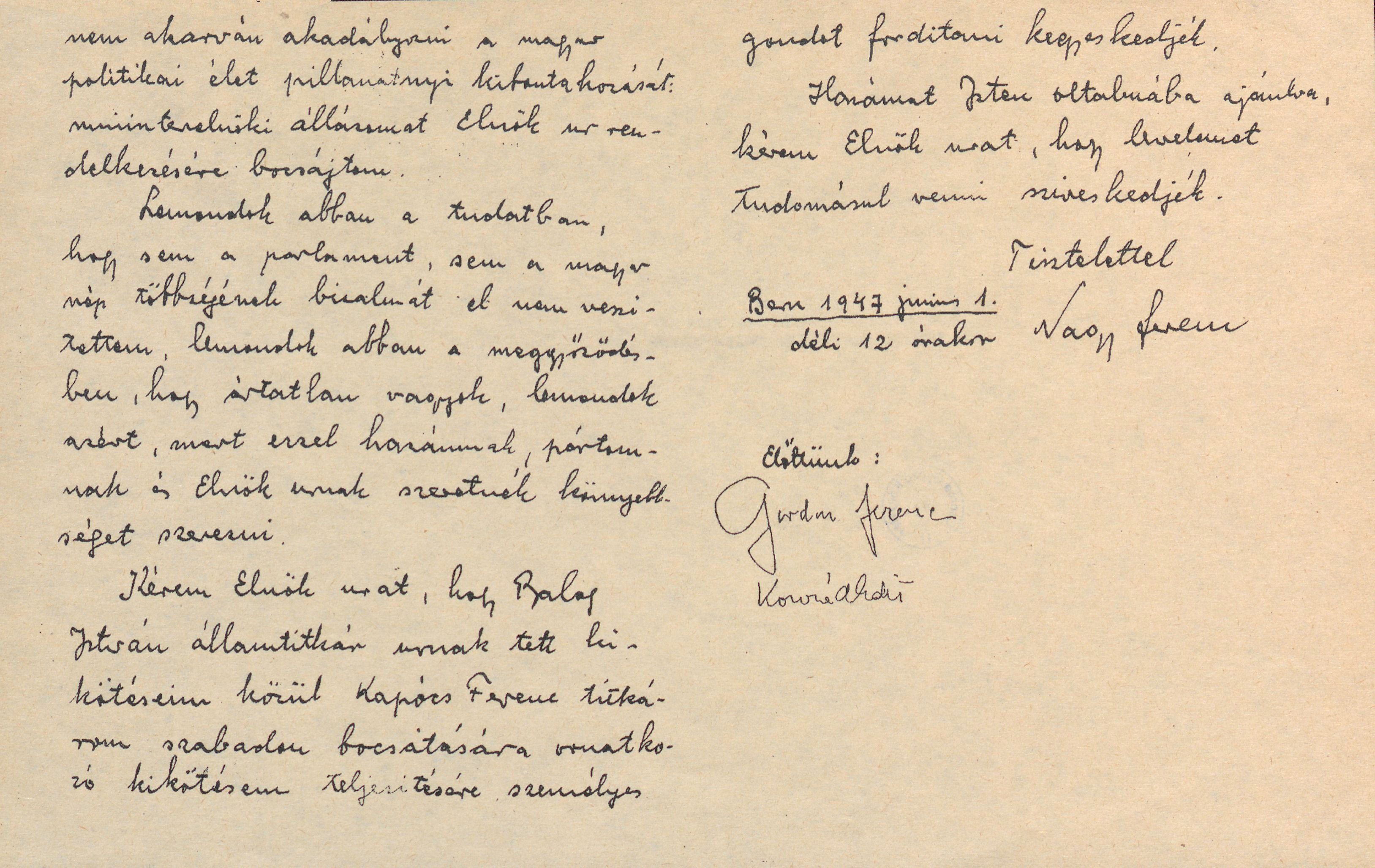RESEARCH
“I resign in the knowledge that I have not lost the trust of either Parliament or the majority of the Hungarian people. I resign in the conviction that I am innocent. I resign because I want to make things easier for my country, my party, and the President.”
Ferenc Nagy's letter of resignation from Switzerland, Bern, June 1, 1947.
WHAT DO WE DO?
Our research group conducts a wide range of research activities. The most important basis for this is the Prime Minister's personal archive, which was donated to Columbia University in New York by his son, László Nagy, and is currently housed in the Bakhmeteff Archives of the Rare Book and Manuscript Library at the university. Ferenc Nagy's surviving daughters gave us permission to digitize the entire archive. This priceless collection contains 21,500 items and at least 200,000 pages of documents (personal papers, correspondence, manuscripts, newspapers, etc.), as well as photographs and audio recordings. A significant portion of the material was digitized by Zoltán Ginelli.
Research
Our research group conducts a wide range of research activities. The most important basis for this is the Prime Minister's personal archive, which was donated to Columbia University in New York by his son, László Nagy, and is currently housed in the Bakhmeteff Archives of the Rare Book and Manuscript Library at the university. Ferenc Nagy's surviving daughters gave us permission to digitize the entire archive. This priceless collection contains 21,500 items and at least 200,000 pages of documents (personal papers, correspondence, manuscripts, newspapers, etc.), as well as photographs and audio recordings. A significant portion of the material was digitized by Zoltán Ginelli.
The personal heritage is supplemented by additional materials from the Research Group: materials from Hungarian state and private collections, archival and local history documents, memoirs, interviews, as well as other manuscripts, speeches, and university lectures by Ferenc Nagy found in the US and other foreign locations, along with photo, video, and audio materials. Our goal is to create a searchable digital archive that can assist researchers in their work as a searchable, metadata-enriched multimedia database.
We also consider it important to promote the results of the Prime Minister's research. We publish our research in the media, at academic conferences, at commemorative events, and in publications.
We also consider it important to promote the results of the Prime Minister's research. We publish our research in the media, at academic conferences, at commemorative events, and in publications.
Pannon TV Pécs: Ismerős (2021.4.16.)
Slajchó Zénó editor, Viszti István & Tamás Gábor cameraman.
Site: Reformed church in Bisse (2021.3.24.)
Documents
Perhaps the most valuable material in the Research Group's collection is the documents, which remain almost completely untouched. A significant part of the collection consists of carefully preserved personal papers: Ferenc Nagy's personal documents, manuscripts, publications (books, journalistic articles, etc.), notebooks, notes, invitation letters, reports, and materials, reports, and press clippings prepared by his former colleagues (e.g., Mihály Hőgye, István Csicsery-Rónay, Ferenc Pishky). In addition to personal and family documents, his personal correspondence and secret reports (e.g., those written for the CIA), as well as his diplomatic letters and telegrams (e.g., his request to Nehru to save István Bibó's life) are particularly valuable. Also relevant are the Hungarian state security reports from the Kádár era, in which Ferenc Nagy was given the code name "Gazda" (Farmer).
Through digitization, the documents have been characterized (OCR) and organized into a database, making them searchable and facilitating research. One of our goals is to map Ferenc Nagy's correspondence network using a geographical and digital humanities approach.
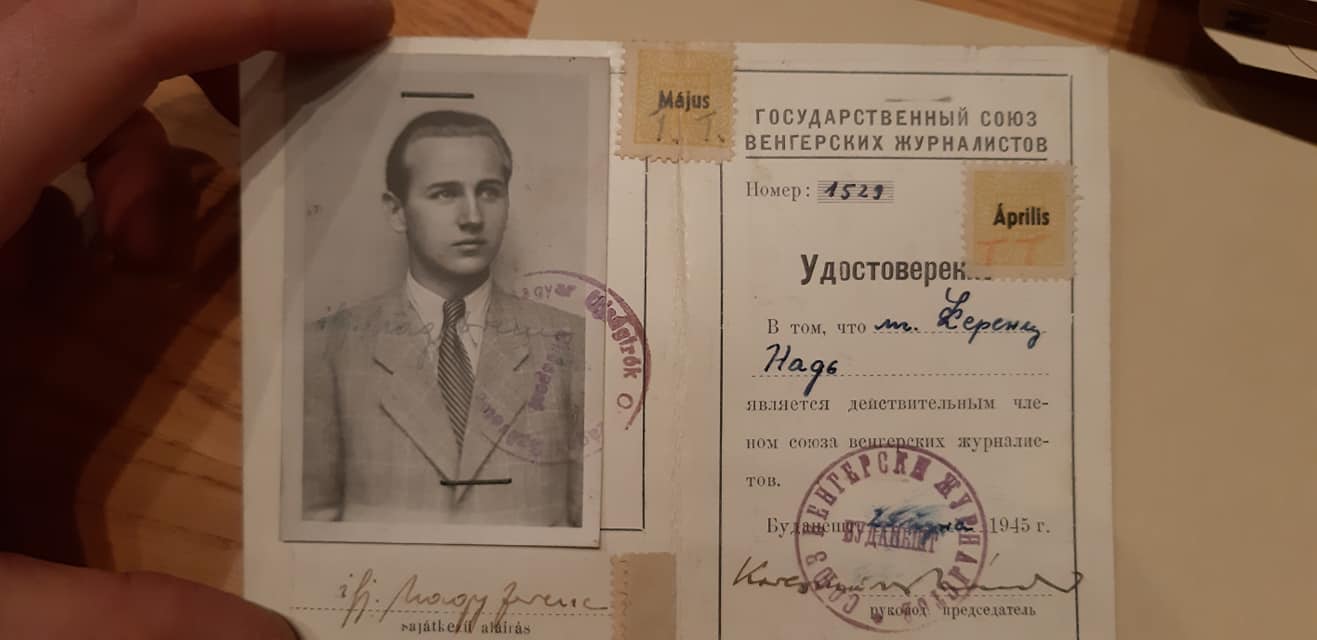
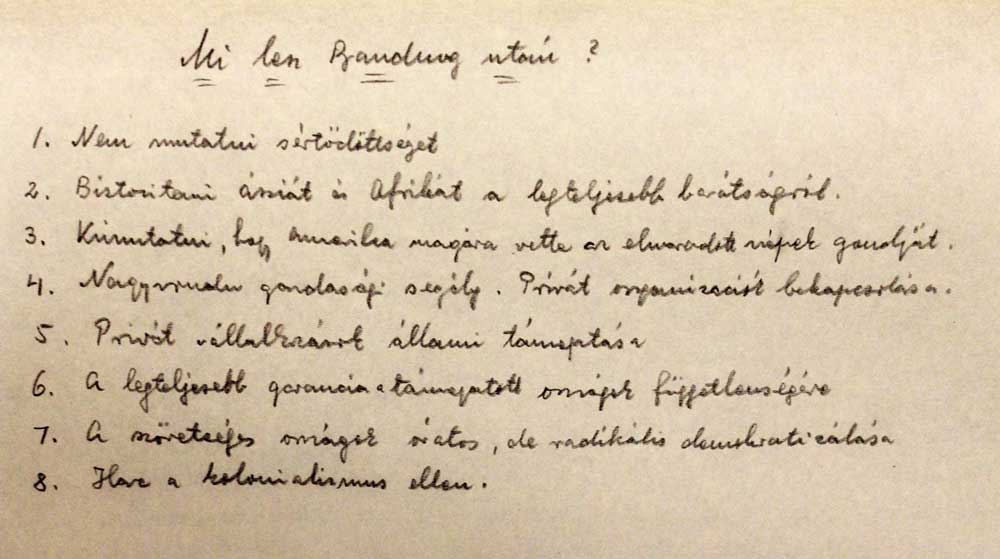

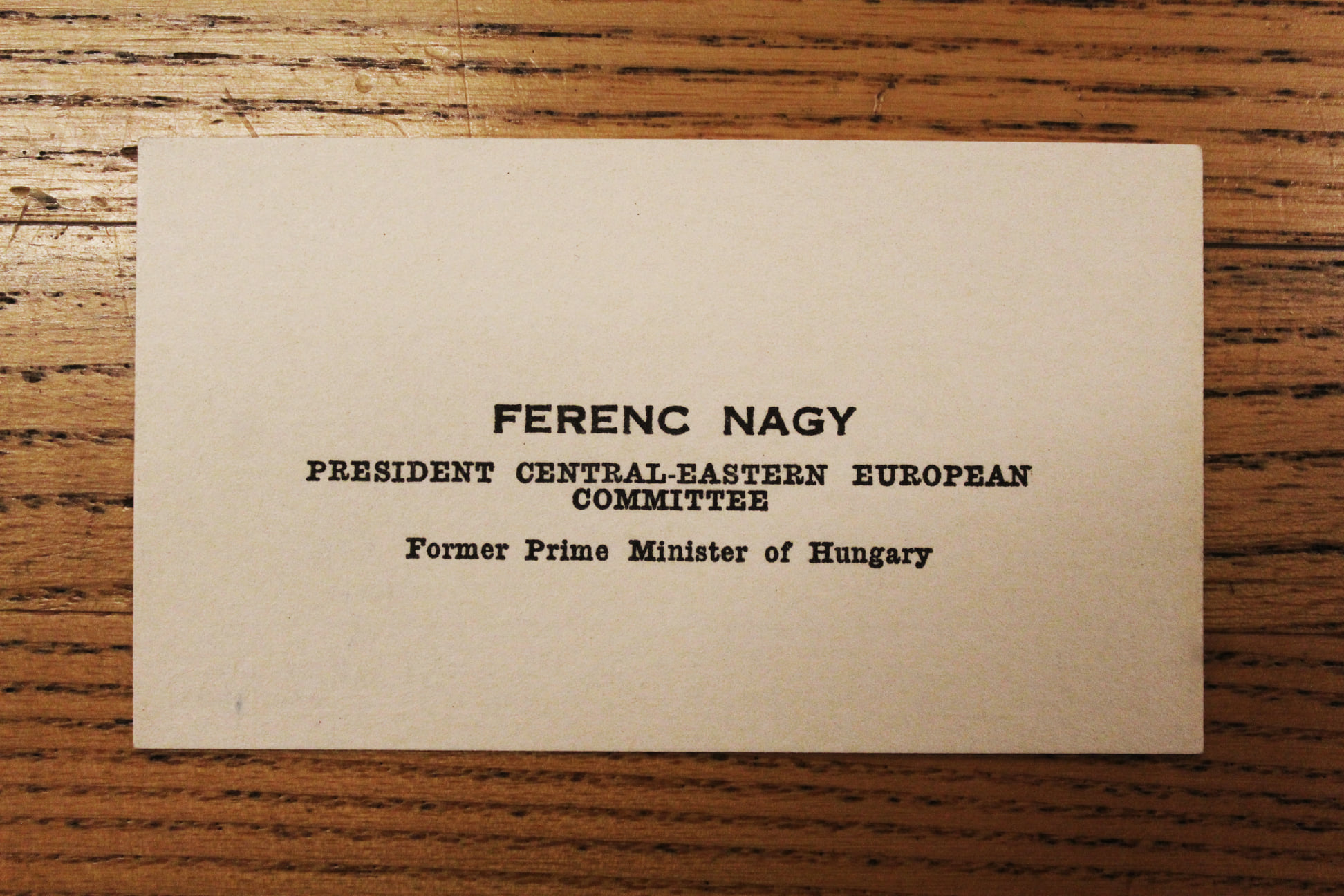

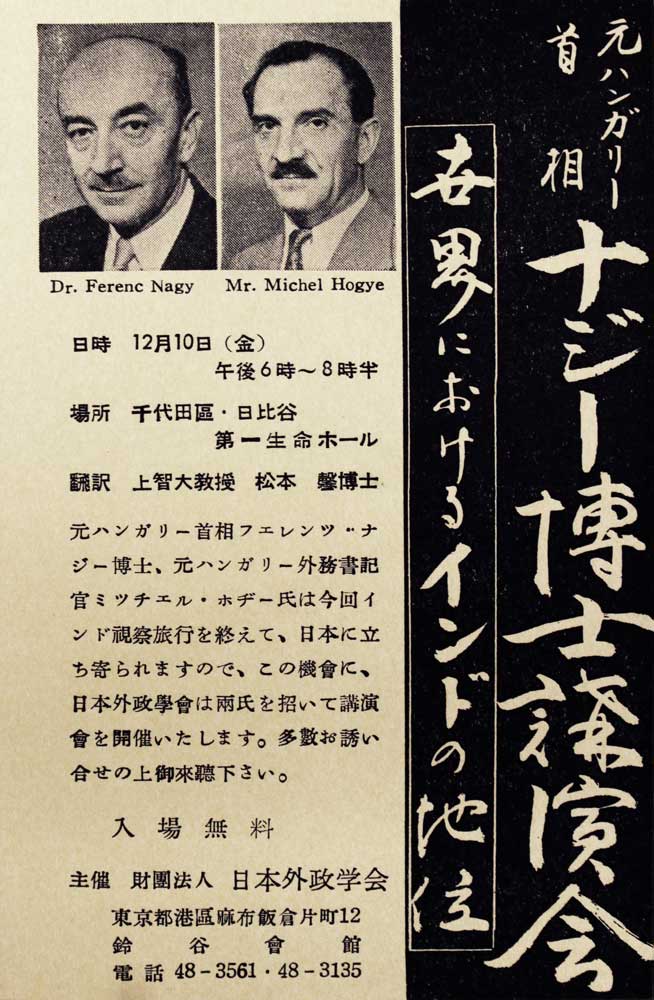
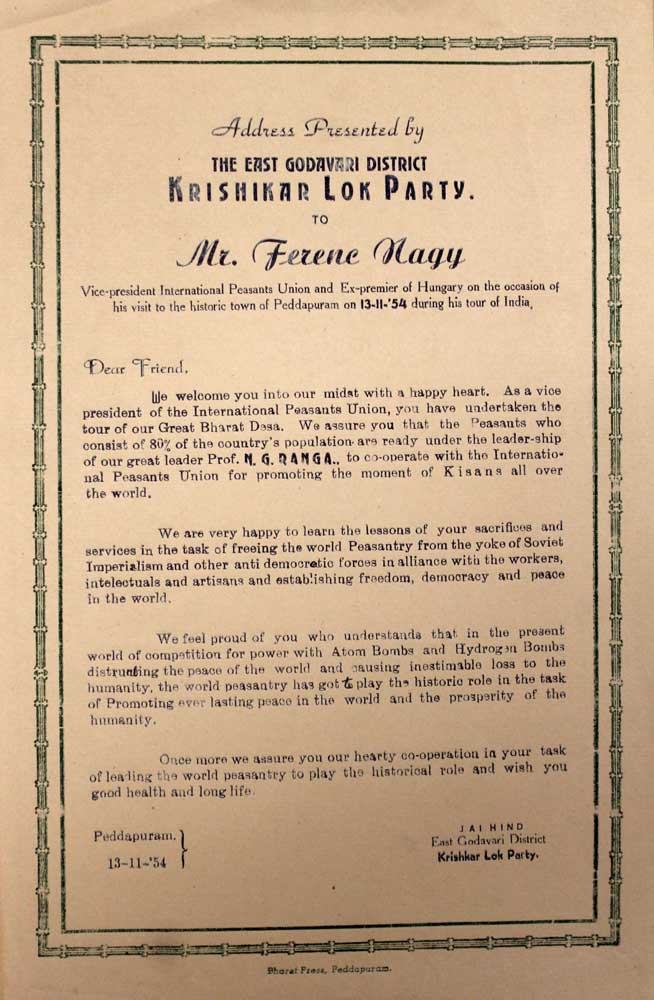
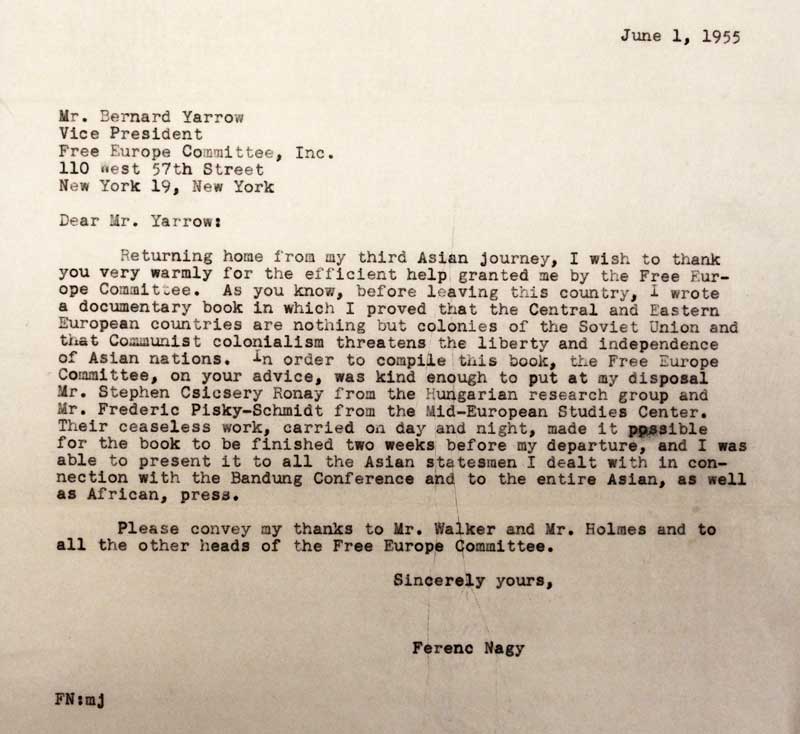
Columbia University, Rare Book and Manuscript Library, Bakhmeteff Archives.
